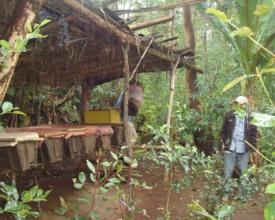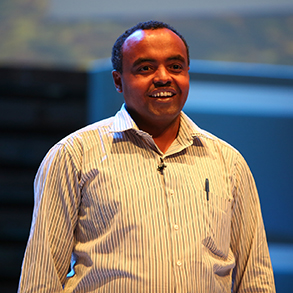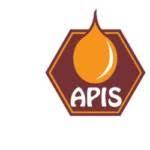
Self-help business model in harmony with nature
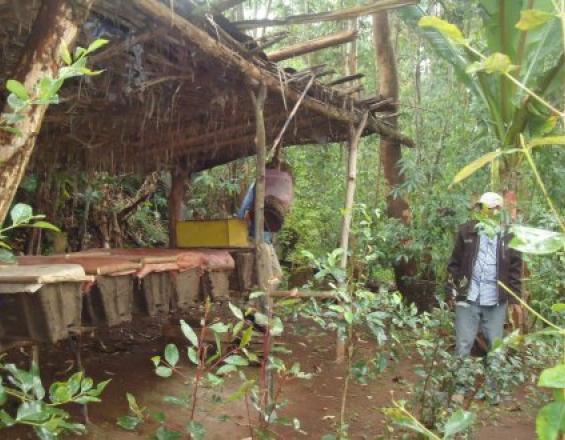
Our solution is connecting rural unemployed youth in natural forest areas to production of organic honey and sustainable markets. The honey sector has the highest potential to achieve transformation and growth across all categories of rural households. Beekeeping does not require fertile land, a large area, much initial capital. This makes the sector attractive for unemployed youth with limited resources. However, despite its potential for the development of rural economy, the sector faces a number of problems. We are working with rural unemployed youth, supporting them to have well organized apiary sites near to the forest, establishing a learning and collection center in a youth village with a strong coaching system. The collection center helps the youth to supply their product easily without any transportation. In addition, they will have premium prices from sales of organic honey. Every youth beekeepers will plant trees and conserve the existing natural forest.
Context
Challenges addressed
Ethiopia is an agrarian country with a wide topographic range and diverse climate conditions. As a result, the country is well endowed in natural resources and various ecosystems. However, deforestation and ecological degradation which has gone for the last five decades has been challenging the country economic development. Forest coverages which were above 40% of the country’s landmass in the beginning of the 20th century are reduced to 2-3% in 2000. For the rainfall dependent agriculture this was a big challenge. The main causes for deforestation is the high population growth which results in big unemployment, lack of efforts to ensure the participation of communities in forest protection and linking to economic benefits. Due to low productivity in agriculture and lack of income diversification there is big migration of youth, unemployment and deforestation to expand agricultural land. Our solution addresses these challenges through creating innovative agri-based business.
Location
Process
Summary of the process
The building blocks are business (BB 1) and sustainability (BB 2). Both react to each other to solve the challenges. Considering only the business does not bring the intended solution. It is a must to merge both BB into sustainable business to address the challenges. It is a win-win for the project and for the unemployed youth. The youth needs the money and the business needs the honey. Including sustainability supports the business to win on the market. The interaction between sustainability and business (aim of maximizing profit) creates a good opportunity for the success of the intervention.
Building Blocks
Inclusive business approach
Our solution is exploring the potential opportunity for the rural unemployed youth in protecting their natural forest. On one hand the youth are unemployed and on the other hand there is a huge potential in the forest. This needs systematic intervention to show the possibility to solve their unemployment problem in keeping the biodiversity. Business is our main tool for this intervention - It is making money from honey. Honey production fits best into conserving the forest in the area concerning solving the economic and social problems. The business approach is our building block since other many intervention such as NGO approach didn’t bring continuous change in the area. The growing demand for organic honey supports our system.
Enabling factors
- The market for organic honey
- The suitability of the area for honey production
- The simplicity of the production system
- The interest of the society to accept changes
Lesson learned
- It is possible to make money (profit) in contributing to rural development
- Everybody has the capacity to develop, if someone helps in how to do this practically.
- The developing story behind a product is a powerful tool to get good market demand.
- Spending more time in the project area helps the youth to develop confidence in the intervention
Sustainability as a tool for change
The central core point for this solution is the sustainability concept of intervention. Three main components of sustainability are addressed and exercised by the youth and all chain actors. By this organic honey production fits to the sustainability issues. From our business slogan “No tree, No bee, No honey, No money” one can understand, how it is really in line with sustainability. In our intervention we a have a vision to see happy beekeepers, healthy environment and quality honey. This approach also helps us to get a market for our product.
Enabling factors
- Existence of the natural forest
- Farmers livelihoods depending on the forest product
- Sustainability as big agenda everywhere
Lesson learned
- It is possible to develop sustainable business models including biodiversity conservation as main concern
- Organic honey fits in best with sustainable agribusiness
Impacts
In the first place, there is potential for the current organic product market demand to support higher supply. The project is economically sustainable, because it will ultimately improve the income of youth due to the fact, that the price and demand for organic honey is much better and improving from time to time. The production system is highly integrated with natural forest conservation, hence it is environmentally friendly and economically sustainable. This business already secures a market for the honey produced. Since a sustainable supply chain is in place and supported by good market the business can finance itself. To keep the supply chain strong the money earned will be reinvested to strengthen the supply chain. The most promising impact of this project is the conservation of the forest since the society living in the forest is making money. Conserving of the forest is not for free. This is expressed by the slogan “No tree, No bee, No honey No money”. The other impact is organic certification of the production system, which has principles to secure a healthy environment. Since producers earn an additional premium price for organic honey, they can follow strict procedures as stated on a signed contract. In general our result is creating happy beekeepers, quality honey and healthy environment. It is self-help business model in harmony with nature
Beneficiaries
The beneficiaries of this solution are rural unemployed youth and smallholder farmers who live in the natural forest area of South West Ethiopia. In addition, farmers living in rehabilitation area of degraded area also benefit from this intervention.
Sustainable Development Goals
Story
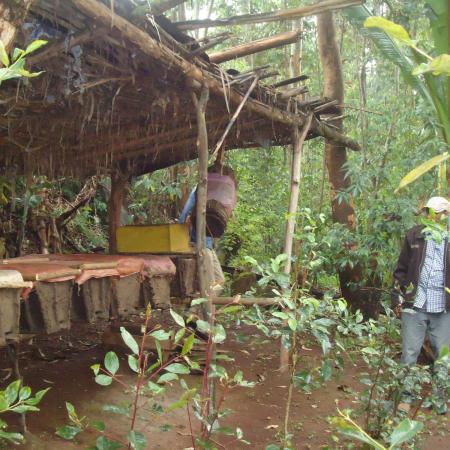
Kidane is a beekeeper in Kundi village. As he got married he asked his family to give him land for cropping and to plant some coffee. Since his family has many children he got small land which is not enough for cropping. He constructed a house and planted some eucalyptus trees and coffee for selling. The income he earned from this was small and discouraged him. The turning point came, when he started beekeeping as a side line business through putting traditional beehives in the forest. He continued in traditional beekeeping for some years, and then shifted to transitional and modern beekeeping after joining our training. He constructed 16 transitional beehives and transferred bee colonies. He observed that transitional beekeeping is by far better than traditional one, since it is easy to apply different colony management practises. In addition to the training, the demonstration site established near to his home by Apis Agribusiness PLC supported him to apply what he learned during the training. From that year he harvested 210 kg of good quality honey and 10 kg of pure beewax. In order to diversify his beekeeping business, he sold colonies which he produced by overcrowding methods of queen rearing and by swarm caching. Today he feels as he is self-employed in his own business. Now his plan is to expand his apiaries to manage 50 beehives in the coming year. He does not have any market problem since he entered a contract with Apis Agribusiness PLC. He has a vision to become a commercial model beekeeper in his village and plans to supply one ton of honey to Apis Agribusiness PLC per year.
Tadess is 22 years old and is living with his family in South West Ethiopia. He started beekeeping for the first time after the training held by Apis Agribusiness in their village. He said “The motivational, business and technical training encouraged me to think and look about opportunities around my village. Beekeeping was interesting for me since it is implemented on small pieces of land with little capital. I have 13 transition beehives made from locally available materials and 12 of them have bees. I harvested 195 kg of pure honey from 10 beehives. Now I feel as being self-employed in my business. I plan to increase the beehives and harvest more than half a ton per year. We are unemployed, having big untouched natural resources. These days nobody is cutting the forest after tasting the ever sweet honey and the earned money from honey sales.”

